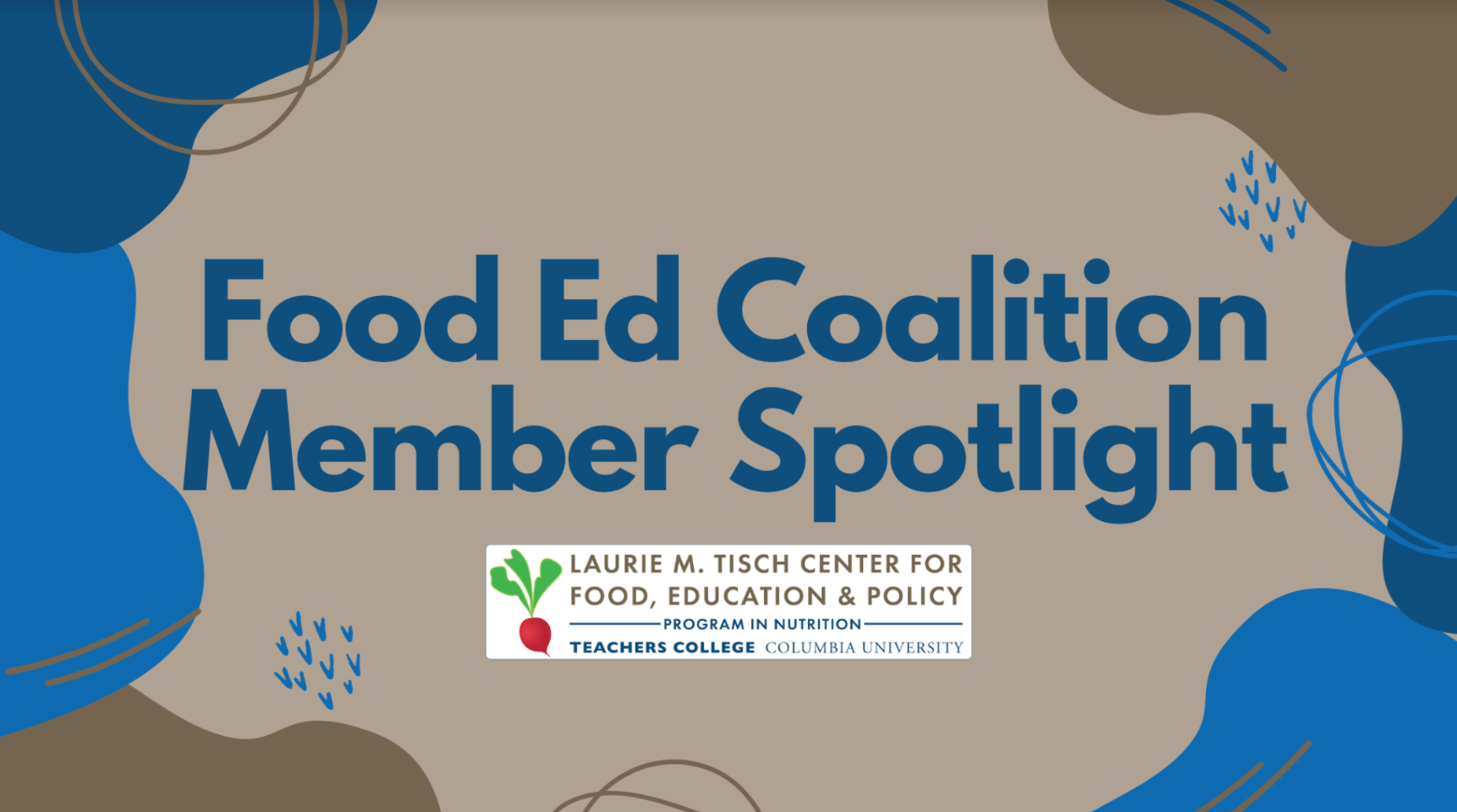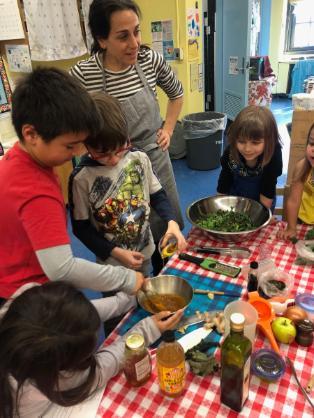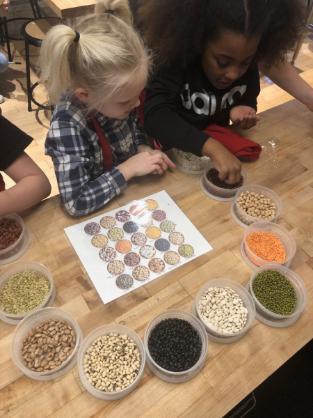The Food Ed Coalition Spotlight Series highlights people and organizations doing amazing work in food education and access in NYC. Find more from the series on the Food Ed Hub.
Quotes have been edited for length and clarity.
Interview with Jill Santopietro, Founder & Director at The Children's Food Lab.
Can you tell us about your career path and passions that led you to The Children’s Food Lab?
I have been in the food world since college, when I started a student run restaurant. I really fell in love with food when studying abroad in Italy for a year. I was considering medicine or food, some facet of the food world. At one of the medical schools I was looking at, I asked one of the doctors what was one of the biggest issues he saw; he said ‘diabetes, Type 2 diabetes in children.’ That was the moment where I thought, ‘do I do what my dad does?’ or ‘do I take my own path?’ I decided to take my own path.
I’ve worked in many facets of the food business….a cook, a waitress, working on food TV shoots, working in journalism, and doing a lot of recipe testing for The New York Times. While I was at The Times, I did a little food programming called ‘Tiny Kitchen’ where I cooked in my kitchen and showed how I made the recipes. Even when I was just out of culinary school, I always taught adult non-professional cooking classes on the side.
Having gone to culinary school and worked in the food industry….I feel like I got a good idea of the landscape. In all that time, I never really got educated about the food I was cooking. In my culinary program, we didn’t get into how wheat is grown, how it’s processed, how it moves through this whole system….It was this real gap in education. I felt like there was a real lack of core education on the ingredients we were working with. I decided that I wanted to have more impact in a good way.
I started looking at different programs to get involved in, and then I decided that I really wanted to work on this curriculum I had in my head that I could develop. So I’ve been working for the last four years on this curriculum. I have been bringing it to schools, mostly in after-school programming. My goal is to bring this to schools as push-in programs during school hours so that kids who don’t have the finances to do it as an after-school program can take part in it.
In my culinary program, we didn’t get into how wheat is grown, how it’s processed, how it moves through this whole system….It was this real gap in education. I felt like there was a real lack of core education on the ingredients we were working with.
Can you tell us about what The Children’s Food Lab does and its impact?
We start every class off with an ingredient, whether it’s salt, baking powder, baking soda, or wheat. We really delve into that one ingredient. We’ll touch it, smell it. For example, I'll bring wheat for the wheat class. We’ll talk about the history of wheat, how it moved through the centuries, how it was used, and how risen dough came about. We’ll actually thresh wheat together and the kids will see all the wheat berries falling out. Then we winnow it, meaning to separate the chaff from the wheat berries. Then we take the wheat berries and we put them into a mortar and pestle to show how long it takes to make bread and why bread is precious. We take that whole wheat flour and we sift it through a fine strainer to show how white that white flour is underneath and in the strainer we have the wheat germ and bran. Then we use our flour to make crackers.
It’s not just cooking, it’s really understanding the ingredients and learning the history, the art, and the science behind it. For me, teaching these classes has been so enlightening because I’m learning too. I’ve learned so much about these ingredients. This is the kind of education that I want to bring into the school day because during after-school programming a lot of kids just want fun, and my program is super fun, but it’s very educational too.
It’s not just cooking, it’s really understanding the ingredients and learning the history, the art, and the science behind it.
Photo Credit: The Children's Food Lab
How have your services changed throughout the pandemic and what are some lessons you’ve learned?
Before COVID, I was working with three different schools, all after-school work. All the after-school programs I was working with really shut down, so I started doing zoom classes. I emailed a lot of the families I was already working with saying that I was offering online classes. It was amazing how well it did work. I transitioned to all online last year. I worked with about 48 families and I did two classes a week. There is so much work to prepare for the classes. In the cooking classes, the kids are making a full dinner for the family. A lot of the parents loved that about the class, but it did require the parents to be there.
My focus right now is to find a school to work with in the spring. I am looking for a school that wants to pilot my curriculum during school hours. The exciting thing is that online education in food does work and it was an exciting discovery.
How can people support your work right now?
I’m looking for a partner, whether it’s a middle school science teacher or a principal who is really excited about bringing food education to their school. I think there’s a real opportunity to bring more of this food education and hand-ons learning into our schools. There is such an emphasis in our school system on math and English language arts that I think we lose a lot of children and discovery that occurs beyond math and ELA. Using your hands and creating something from scratch is really powerful. I hope that our education system will bring those things back and allow kids to learn through hands-on skills.
Food, more than anything else, is crucial. The facts are that kids are getting Type 2 diabetes, and they aren’t learning why. Do we change the food in schools? Or do we educate in schools? I think we should do both. I believe that if you educate the kids and their parents, then they are going to demand better food.
Using your hands and creating something from scratch is really powerful.
Check out some of our other recent Spotlights:


